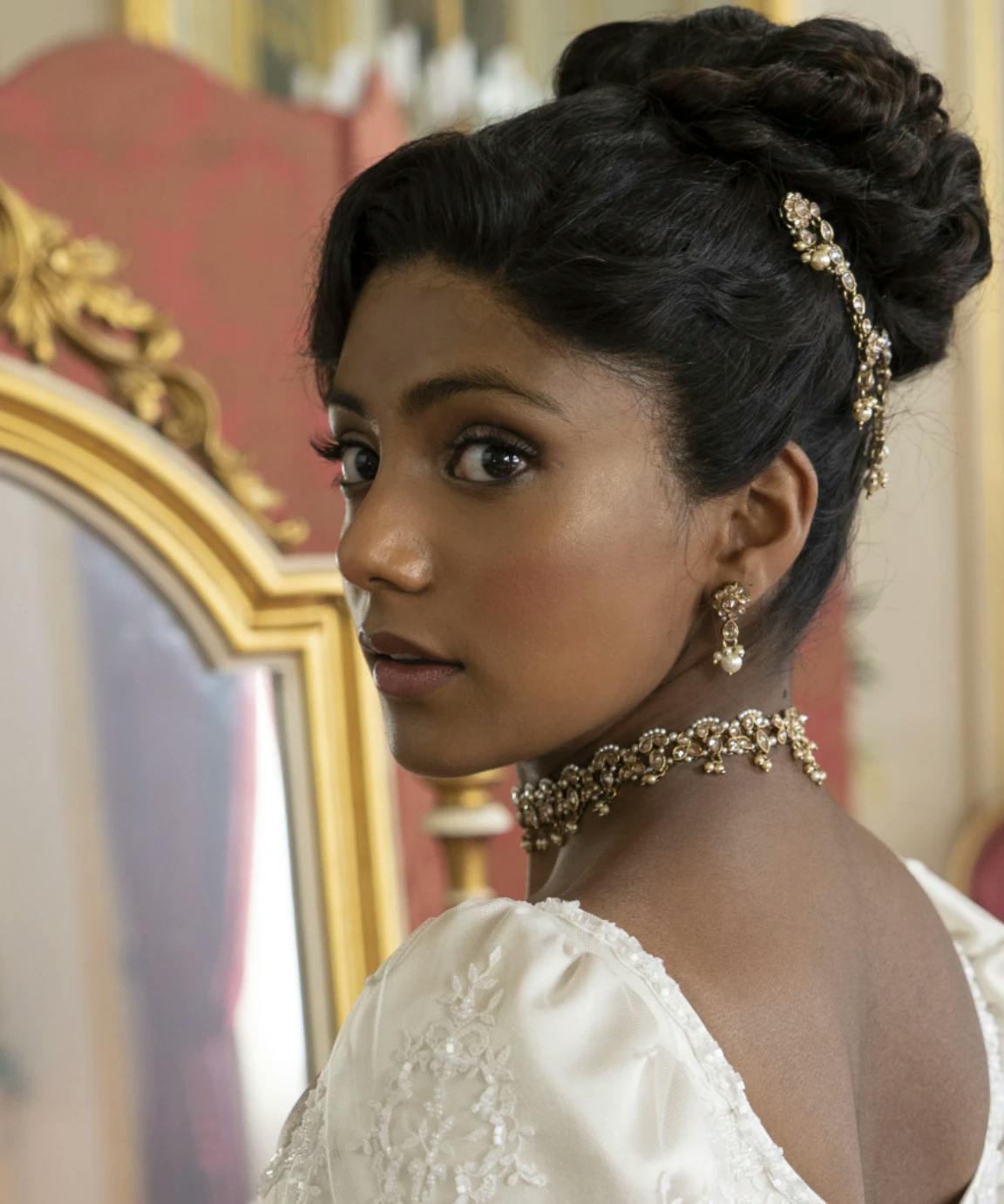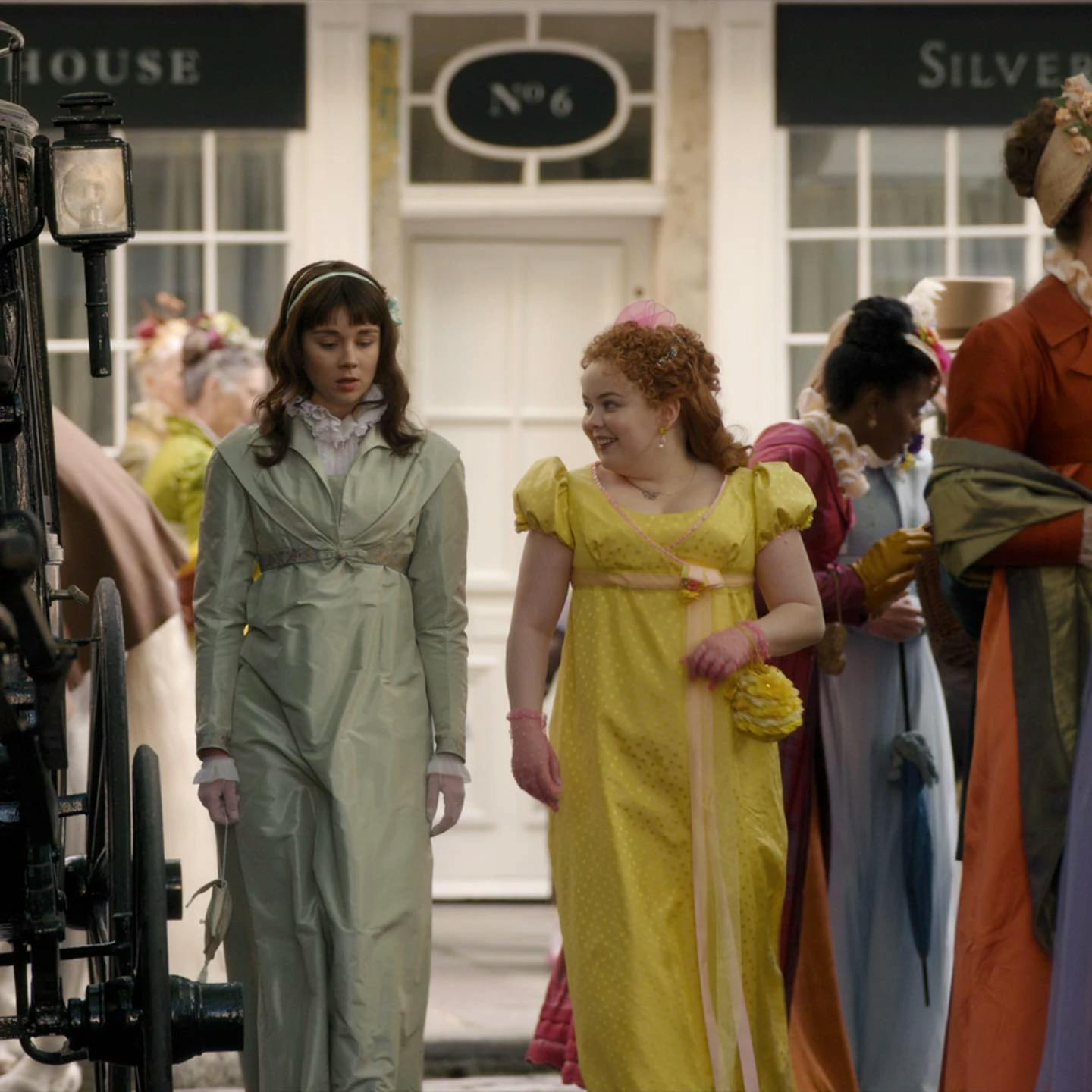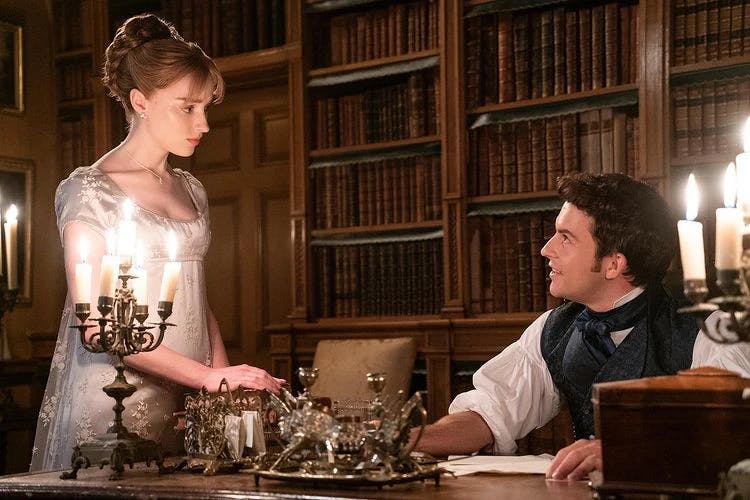Why I Liked ‘Bridgerton’ In Spite Of Myself: What It Actually Gets Right About Family, Life, And Love
The hit series, “Bridgerton”, exploded onto the pop-culture scene in 2020 and is Netflix’s biggest show to date. Although I initially resisted the temptation to watch, my curiosity eventually got the better of me. I was immediately hooked. But if I'm being honest, I felt guilty for liking it.

Multiple storylines had me cringing, the copious sex and nudity had me frequently clicking the skip button, and the characters’ life decisions had me feeling like I was watching a colorful, glittery train wreck.
But I know other women who share my values and who also like Bridgerton in spite of themselves. I wondered: what is it about this show that resonates with us? I believe the most compelling stories are those that are rooted in what we know to be true about the world, regardless of the personal beliefs of a story’s creator. Does Bridgerton have problems? Of course. But it’s a compelling show to many women because it tells stories that line up with the realities of life and human relationships.
Spoilers ahead.
Bridgerton Demonstrates the Generational Value of the Nuclear Family
One interesting element of Bridgerton is its portrayal of positive family life. The eight Bridgerton siblings, despite their disagreements, genuinely love and support each other. Their banter provides comic relief, and the family copes with scandal and conflict by sticking together and presenting a united front to the watching world. And although their father Edmund Bridgerton is dead, we see that the love he and Violet Bridgerton shared has set a high standard for the way their children view love and marriage. Following Violet’s example, Daphne longs to create her own loving family. In a refreshing contrast to the general attitude of pop-culture today, Daphne’s desire to be a wife and mother is portrayed as a worthy life goal – not something to be mocked or overcome.
Simon Basset and Penelope Featherington had very different childhood experiences than the Bridgertons. Simon’s father emotionally abandoned his wife and son, and their dysfunctional family gave Simon a twisted view of love, marriage, and children. The Featherington sisters constantly bicker, and Mr. and Mrs. Featherington’s relationship is marked by bitterness and contempt. Simon and Penelope both face extra challenges while the Bridgerton children reap the benefits of growing up in a healthy family.
The nuclear family is in decline in our culture, and this has disastrous effects for men, women, children, and our society as a whole. Children who grow up with a married father and mother in the home are more likely to be healthy, avoid poverty, avoid crime, do well in school, and have successful relationships. No matter how progressive our society becomes we can’t successfully deny this basic reality.
Empowered Women Take Responsibility for Their Lives
Women face many disadvantages in the society of Bridgerton. The way the characters react to those challenges demonstrates that true feminine empowerment comes from taking responsibility for your choices, not from complaining and wallowing in victimhood.
Take Eloise, the second Bridgerton daughter. She’s a favorite character of some fans, but personally, I can’t understand why. Yes, she’s full of witty one-liners, but she’s also critical, sarcastic, and mean, even to her family and friends. Eloise sees herself as a helpless victim of her circumstances. She responds to the double standards of her time by constantly complaining while simultaneously feeling superior to everyone else. She mocks the women around her, including Daphne and Penelope, for participating in British high society. Eloise is the Regency equivalent of the edgy teenage feminist who calls the women she doesn’t like “pick me girls.”
But for all her complaining about her lack of agency, Eloise doesn’t actually do anything with her life. She attends a couple of political meetings, but at the end of Season 2, she hasn’t experienced any character growth or changed her circumstances. And sadly, her distain for the world she lives in alienates her from her sister and best friend.

Penelope, while less privileged, is the opposite of Eloise in her response to her circumstances. Penelope is not conventionally pretty, she’s ignored by her family, and she’s always in financially perilous situations. She’s the quintessential wallflower. But instead of complaining, Penelope takes matters into her own hands and uses her talents to create the Lady Whistledown column, becoming one of the most powerful people in the town. Penelope realizes it’s up to her to create the life she wants and so she makes the best of what she has.
Life is full of unfair circumstances. Whether it’s societal disadvantages or personal struggles, everyone faces challenges they can’t control. But whining and lashing out at the unfair world doesn’t create a happy life. A mature woman realizes that she is solely responsible for her own happiness. When faced with challenges we can choose to play the victim or take what we have and create a meaningful life out of it.
Maturity Requires Properly Balancing Duty and Emotion
Simon’s, Kate’s, and Anthony’s character arcs illustrate that maturity is found in balancing the demands of your moral duties with your heart’s desires. Despite their self-perception, all three characters are controlled by their emotions, so they compensate by suppressing their feelings in unhealthy ways. Simon thinks bitter stoicism is the way to become a strong man his father would approve of. Kate was rejected by British high society, so she suppresses her feelings for Anthony in a misguided attempt to give her sister Edwina the perfect life Kate wanted for herself. Anthony is traumatized by his inability to save his father’s life, so he compensates by obsessing over his role as the head of his family. He sees himself as heroic in setting aside what he desires in order to “do his duty.” Although they don’t realize it, all three actually let their emotions control them and they end up hurting the people they love.

Most women I know have big hearts and strong moral convictions. Sometimes we suppress how we’re feeling in order to “do the right thing.” But ignoring our emotions doesn’t make them go away. So what is the solution? Should we give in to our emotions? Follow our heart no matter what? Should Simon, Anthony, and Kate have abandoned what they knew to be right to follow their feelings? Of course not. The solution is to recognize the emotions that drive us and use them to inform, not control, our decisions.
The Bridgerton characters learn this. Daphne helps Simon realize that his bitterness toward his father causes him to make decisions that harm his marriage and make him unhappy. Kate reconciles with her mother and sister and confesses her love to Anthony. And Anthony realizes that, while his family needs him, he can’t control everything they do. In an early moment of clarity, Anthony affirms that he is learning to care for the “family he has,” rather than family he thinks he wants.
Love, Sex, and Marriage Are Serious Business
Marriage is a big deal in the Bridgerton world. Although many customs in the show are questionable, there’s something about this throwback to the Regency era that appeals to us. The men are direct in pursuit of a wife. No “sliding into DMs,” “ghosting,” or “situationships” here. Expectations are clear for men and women. And polite society agrees that sex should take place within marriage.
Unfortunately, that doesn’t stop some Bridgerton characters from engaging in lots of casual sex. Simon and Anthony are both “Capital R Rakes.” The double standard for promiscuous men and women is a major theme in Bridgerton. Women are expected to preserve the highest level of sexual purity, while men are able to behave however they want.
Does this double standard make men happier? Are Simon and Anthony more satisfied than characters who follow a more traditional sexual ethic? Absolutely not! And more and more women today are waking up to the realization that hookup culture makes women miserable. But Bridgerton demonstrates that hookup culture hurts men too! Simon and Anthony are frustrated and lonely. When they abandon sleeping around in favor of marriage and family, they find true happiness.
Now, is it true that, in the real world, a good woman can magically "tame the bad boy?" Unfortunately, no. I would warn any friend of mine to stay far away from a Simon or an Anthony. But the fictional world of Bridgerton shows us that sex outside of marriage is not as empowering as our culture would have us believe.
Successful Marriages Need Chemistry and Compatibility
Perhaps my favorite theme of Bridgerton is that sexual chemistry on its own is not enough to create a healthy marriage. Simon and Daphne’s sexual tension exploded onto the screen from their first scene together in Season 1. The smoldering stares, the brush of hands, the famous “I burn for you line” made us swoon. But within weeks of their wedding, their relationship crumbles into a wreckage of deception and bitterness. They married despite knowing they had different visions for life and family.
Sexual chemistry is essential (and wonderful) in a marriage. But it isn’t enough. You need chemistry as well as compatibility when it comes to values and life goals. Simon and Daphne resolved their issues when they had the humility to admit where they were wrong.
Most importantly, Simon and Daphne realize they must commit to loving each other even when they want to give up. In a climactic scene, Daphne’s mother Violet gives Daphne advice that changes her perspective on marriage. Violet says, “That is not to say it [marriage] was without its trials. Your father and I faced many difficulties indeed, but we overcame them. We made a decision early on to do so…We chose to love each other every single day. It is a choice, dearest, one that is never too late to make.”
Love is a choice. Daphne makes the choice to tell Simon she loves him despite his flaws. That moment is a turning point in their marriage as they both choose to put aside their pride and commit to loving each other no matter what.
Closing Thoughts
The value of family, the necessity of taking responsibility for your life choices and emotions, and the serious nature of love, sex, and marriage – these are timeless themes that are rooted in human nature. Despite its modern sensibilities, Bridgerton illustrates these themes so compellingly that I like the show in spite of myself.
Love Evie? Let us know what you love and what else you want to see from us in the official Evie reader survey.